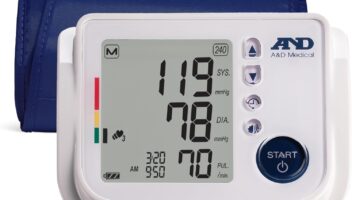Hey there! If you’re reading this, chances are you’ve experienced anxiety in one way or another. Maybe it was that nagging feeling in your stomach before a big presentation, or perhaps your heart raced out of nowhere during a quiet evening at home. I’ve been there too, and it can feel downright overwhelming.
But here’s the thing: amidst all that chaos, your body is trying to send you messages. Let’s dive into the science of anxiety together and explore what your body might be trying to tell you.
Understanding the Anxious Brain
First things first, let’s talk about what anxiety actually is. At its core, anxiety is your body’s natural response to stress. When you perceive a threat—whether it’s an actual danger or a stressful deadline—your brain activates the "fight or flight" response. This is when adrenaline kicks in, your heart rate increases, and you may feel as though your muscles are ready to spring into action.
I remember the first time I felt that overwhelming rush—the kind that makes your palms sweaty and your thoughts race. It was during my first college exam, and instead of focusing on the questions, my brain was convinced there was a lion lurking nearby. Spoiler alert: there wasn’t!
This fight or flight response can sometimes feel like more of a nuisance than a defense mechanism, but it’s actually designed to keep you safe.
The Physical Symptoms Speak Volumes
Have you ever tried to ignore your body’s signals? I have, and let me tell you, it rarely ends well. Anxiety often presents itself through various physical symptoms, and each one can reveal something important about your state of mind.
For instance, tightness in the chest can be a sign of overwhelming stress. It’s your body’s way of saying, “Hey! We need to take a break and breathe!”
When I was working a particularly demanding job, I often found myself hunched over my desk, feeling like a vice was squeezing my chest. At the time, I thought I was just busy, but really, I was ignoring the warning signs my body was throwing at me.
Other common symptoms include dizziness, nausea, and even trembling. These sensations aren’t just random—they often correlate with what’s happening in our lives and the stresses we face. The next time you feel them, take a moment to check in with yourself rather than pushing through.
Your Gut’s Got a Voice Too
Did you know that your gut is often called your "second brain"? It’s fascinating! The gut-brain connection means that anxiety can impact your digestive system, leading to symptoms like butterflies in your stomach or even full-blown nausea.
I’ll never forget one particularly anxious morning before a family gathering. I felt that familiar flutter in my stomach and blamed it on the coffee I’d gulped down too quickly. Turns out, it was more about the social pressure of being on display than the caffeine!
If your digestive system goes haywire during stressful times, it’s a gentle reminder from your body to slow down. Pay attention to those gut feelings; they often signal deeper emotional truths.
Strategies to Reconnect with Your Body
So, how do we nurture our bodies amidst the whirlwind of anxiety? Here are a few strategies I’ve found helpful:
1. Mindful Breathing
When anxiety strikes, try focusing on your breath. Simple exercises like inhaling deeply through your nose and exhaling slowly from your mouth can help recalibrate your body.
2. Journaling Your Feelings
Writing down what’s on your mind allows you to process your thoughts and unleash the anxiety swirling within. I love keeping a journal for this reason—sometimes, seeing my feelings on paper helps lighten the load.
3. Move Your Body
Physical activity is a fantastic way to combat anxiety. Whether it’s a brisk walk, yoga session, or a dance party in your living room, moving can release pent-up energy and improve your mood.
4. Seek Professional Help
If you find that anxiety is becoming overwhelming, don’t hesitate to reach out to a therapist or counselor. They can provide tools and techniques to help you navigate challenging emotions.
Embrace Your Journey
Remember, anxiety may feel like a heavy cloud hovering above you, but it’s not the enemy. It’s your body’s way of communicating its needs. By tuning into those signals, we can become our own best advocates in managing our mental health.
So, the next time anxiety rears its head, pause for a moment. Instead of labeling it as a nemesis, see it as an opportunity to listen and connect with yourself. You might just find that your body has a lot to say!
Sending you all the positive vibes as you embrace this journey of understanding—because it’s one worth taking.
Disclosure:
Hospitals.net is a participant in the Amazon Services LLC Associates Program, an affiliate advertising program designed to provide a means for sites to earn advertising fees by advertising and linking to Amazon.com, .ca, .co.uk, etc.
AI Disclaimer:
Hospitals.net uses artificial intelligence (AI) tools to assist in gathering and summarizing product information, including reviews and other relevant data for Amazon products and services. While we strive to ensure the accuracy of the information provided, AI-generated content may not always reflect the most up-to-date or accurate details. The information on our site should not be considered professional advice, and users are encouraged to verify any product details directly with Amazon or other official sources before making a purchase.
We do not guarantee the completeness or accuracy of the AI-generated content and are not liable for any discrepancies or errors. Any reliance on the information provided is at the user’s own risk. By using this site, you acknowledge that product availability, pricing, and other details may change over time, and Hospitals.net is not responsible for these changes.
Health Disclaimer:
The health products and information provided on Hospitals.net are for informational purposes only and are not intended to substitute professional medical advice, diagnosis, or treatment. Always consult a qualified healthcare provider or medical professional before using any health products or following any advice you find on this site. The content on Hospitals.net, including product recommendations and reviews, is not a substitute for individualized care from a healthcare provider.
We make no warranties or representations regarding the effectiveness, quality, or safety of the products listed on our site. Any use of these products is solely at your own risk. Hospitals.net is not liable for any harm, injury, or adverse effects that may result from the use or misuse of the health products or information provided.
Please read all product labels, warnings, and directions provided by the manufacturer before using any product. If you have any questions about a product or its suitability for your condition, we recommend contacting the manufacturer directly or consulting a healthcare professional.
If you have any concerns regarding the accuracy of the information on this site, please contact us for further clarification.



